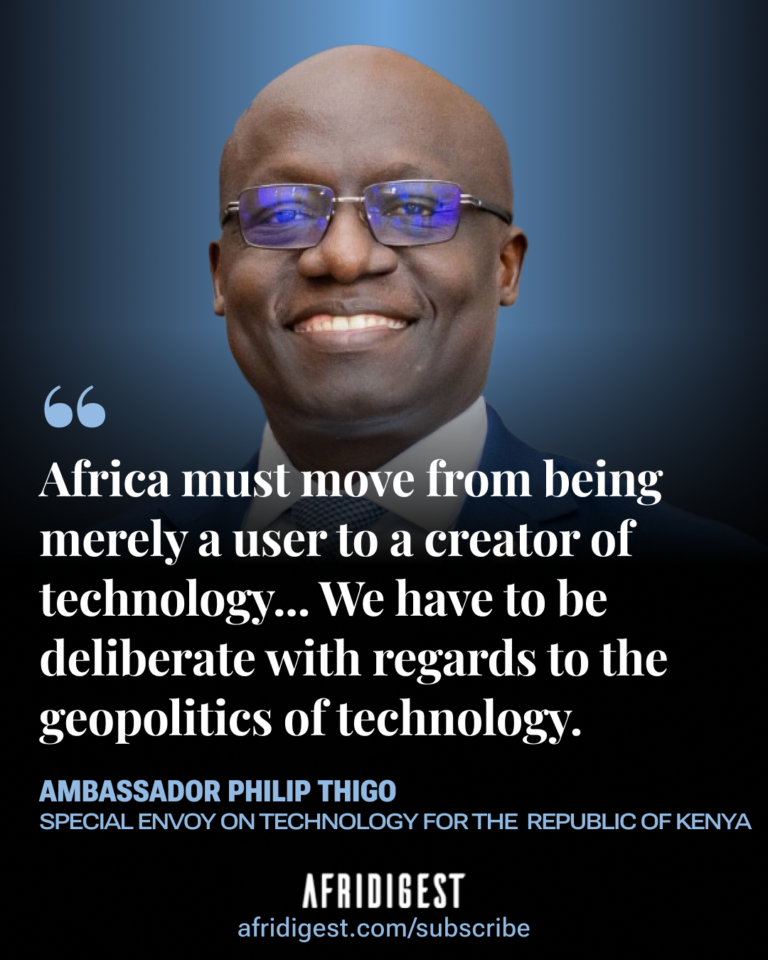“Africa must move from being merely a user to a creator of technology.”
That’s Ambassador Philip Thigo, Special Envoy on Technology for the Republic of Kenya and the first tech ambassador in Africa, articulating what may be the continent’s most critical challenge as the world enters the age of AI.
“We have to be deliberate with regards to the geopolitics of technology,” Thigo, who grew up in Kibera, the largest slum in Nairobi, stresses, highlighting that technological advancement in Africa is a strategic imperative, not just a development driver.

His uncomfortable truth?
Africa is repeating colonial patterns in the digital age.
He points to AI annotation as an example — a sector that has seen Western companies become multi-billion dollar behemoths on the backs of Kenyan workers labeling AI data for pennies.
“In the 1950s and 1960s,” Thigo says, “there was a realization that we needed the entire continent to be liberated. That’s not different from today. We need the entire continent to be liberated from technology colonialism to technology sovereignty.”
His key points:
The pattern must change. “If you look at the First, Second, Third Industrial Revolutions… Africans have always been the raw material or provided the raw material — either labor or resources from the earth. In the Fourth Industrial revolution, unless we disrupt this pattern, there’s a real problem.”
The stakes are existential. “Future economies will be determined by who owns technology… That determines the future of power, and power is not given, power is claimed.”
The window is closing. “Beyond agency, there’s urgency. The foundations are being set at this time so there’s very little time to turn this around.”
According to Thigo, deliberate action is needed across four critical infrastructure areas:
- Talent: Building STEM pipelines and technology fluency across professions
- Data: Developing African data ecosystems and capabilities
- Compute: Investing in data centers and energy infrastructure
- Algorithms: Creating contextual African solutions to African challenges
And he stresses that technological sovereignty in the African context must involve collaboration and coordinated action.
“We need to redefine what sovereignty is in the era of emerging technologies, especially artificial intelligence. African sovereignty must involve shared resources within a continental framework, rather than purely national silos… Not every country needs to build compute, we can have shared data infrastructure, shared compute, shared talent.”
The alternative is stark: “[Africans] will be perennial subscribers and users of technology” rather than creators and owners.
What’s your take?
- Do you agree that Africa is repeating colonial patterns in the digital age, or is this comparison overblown?
- Given the urgency, should countries try to realize the “shared continental infrastructure” vision or focus on specific areas of national sovereignty first?
- Which of Thigo’s four infrastructure areas (talent, data, compute, algorithms) should Africa prioritize first?





Share: